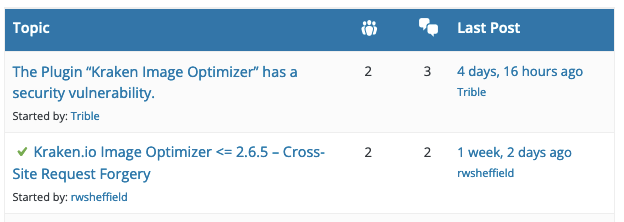Shield Security’s ShieldPRO Also Falsely Claimed that WordPress Plugin Contains Vulnerability
So far this week we have covered both iThemes Security Pro and Wordfence Security falsely claiming that WordPress plugins contained vulnerabilities, which we became aware of through our monitoring of the WordPress Support Forum for discussions of new vulnerabilities in plugins. These seems to be a fairly widespread problem with WordPress security providers, as today yet another instance of it came up. This time with ShieldPRO from Shield Security.
A topic was created yesterday claiming that a WordPress plugin named Admin Menu Editor contained a vulnerability: [Read more]
